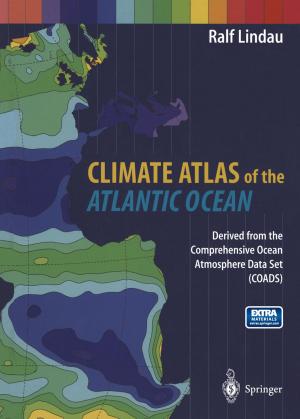Carbon Cycling in the Baltic Sea
Nonfiction, Science & Nature, Science, Earth Sciences, Oceanography, Geology| Author: | Karol Kulinski, Janusz Pempkowiak | ISBN: | 9783642193880 |
| Publisher: | Springer Berlin Heidelberg | Publication: | January 5, 2012 |
| Imprint: | Springer | Language: | English |
| Author: | Karol Kulinski, Janusz Pempkowiak |
| ISBN: | 9783642193880 |
| Publisher: | Springer Berlin Heidelberg |
| Publication: | January 5, 2012 |
| Imprint: | Springer |
| Language: | English |
The Baltic Sea is an area extensively explored by the oceanographers. Hence it is one of the most often described marine areas in the scientific literature. However, there are still several fields which are poorly investigated and reported by scientists. One of them is the carbon cycle of the Baltic Sea. Although it is believed the shelf seas are responsible for about 20% of all marine carbon dioxide uptake, while they constitute only 7% of the whole sea surface, still a scientific debate exists on the role of the Baltic Sea in the global carbon cycle. “Carbon cycle of the Baltic Sea” is intended to be a comprehensive presentation and discussion of state of the art research by biogeochemists involved in the Baltic Sea carbon cycle research. This work presents both qualitative and quantitative descriptions of the main carbon flows in the Baltic Sea as well as their possible shifts induced by climatic and global change.
The Baltic Sea is an area extensively explored by the oceanographers. Hence it is one of the most often described marine areas in the scientific literature. However, there are still several fields which are poorly investigated and reported by scientists. One of them is the carbon cycle of the Baltic Sea. Although it is believed the shelf seas are responsible for about 20% of all marine carbon dioxide uptake, while they constitute only 7% of the whole sea surface, still a scientific debate exists on the role of the Baltic Sea in the global carbon cycle. “Carbon cycle of the Baltic Sea” is intended to be a comprehensive presentation and discussion of state of the art research by biogeochemists involved in the Baltic Sea carbon cycle research. This work presents both qualitative and quantitative descriptions of the main carbon flows in the Baltic Sea as well as their possible shifts induced by climatic and global change.















